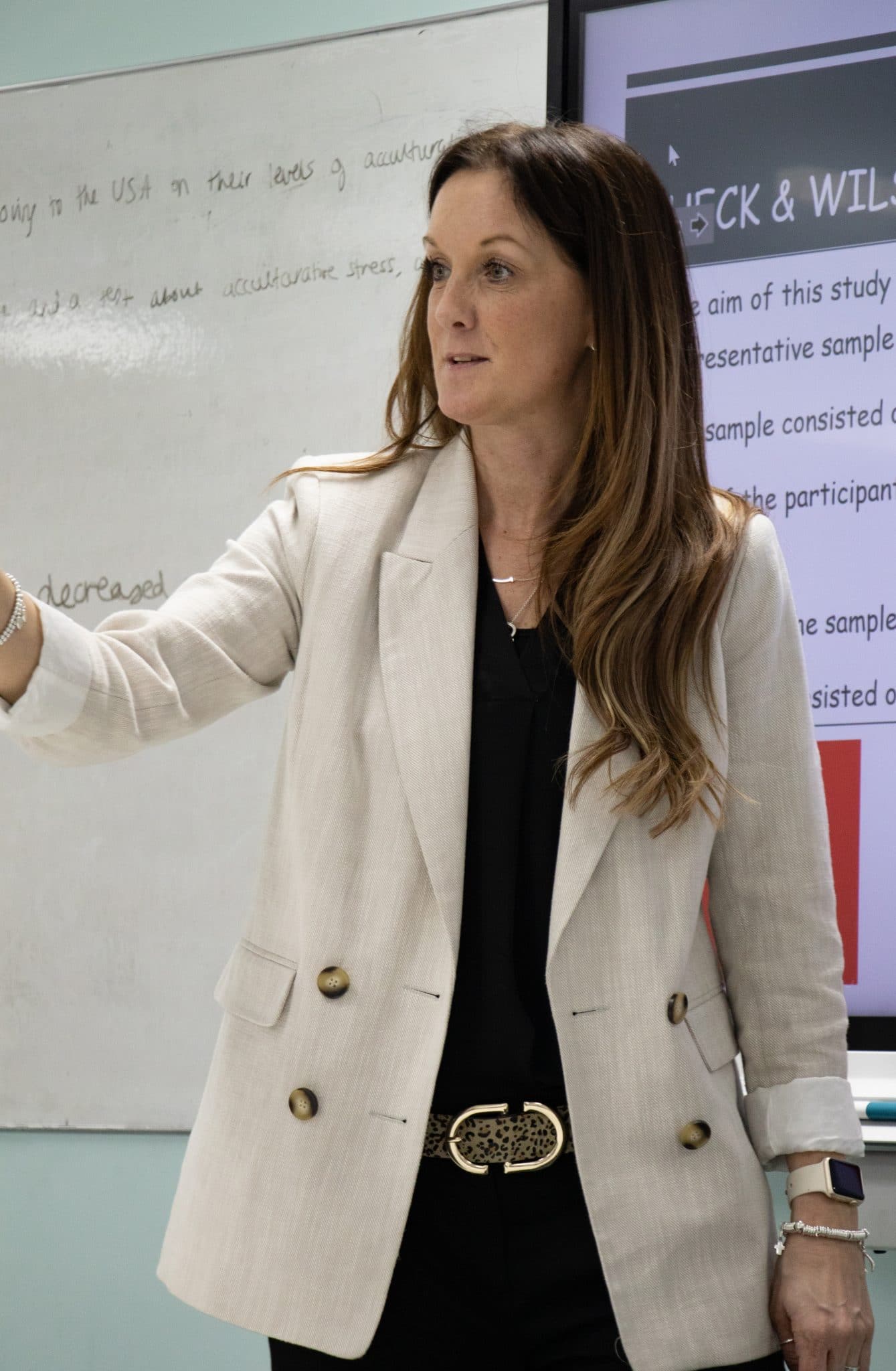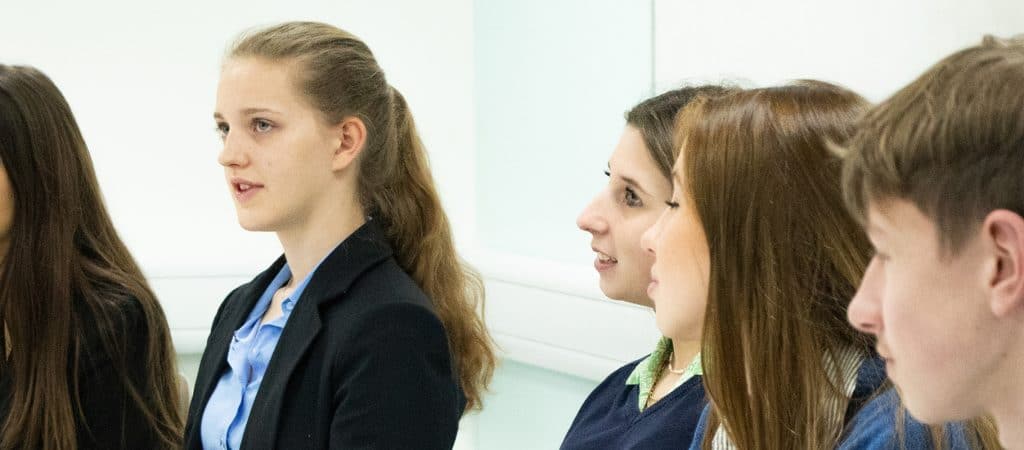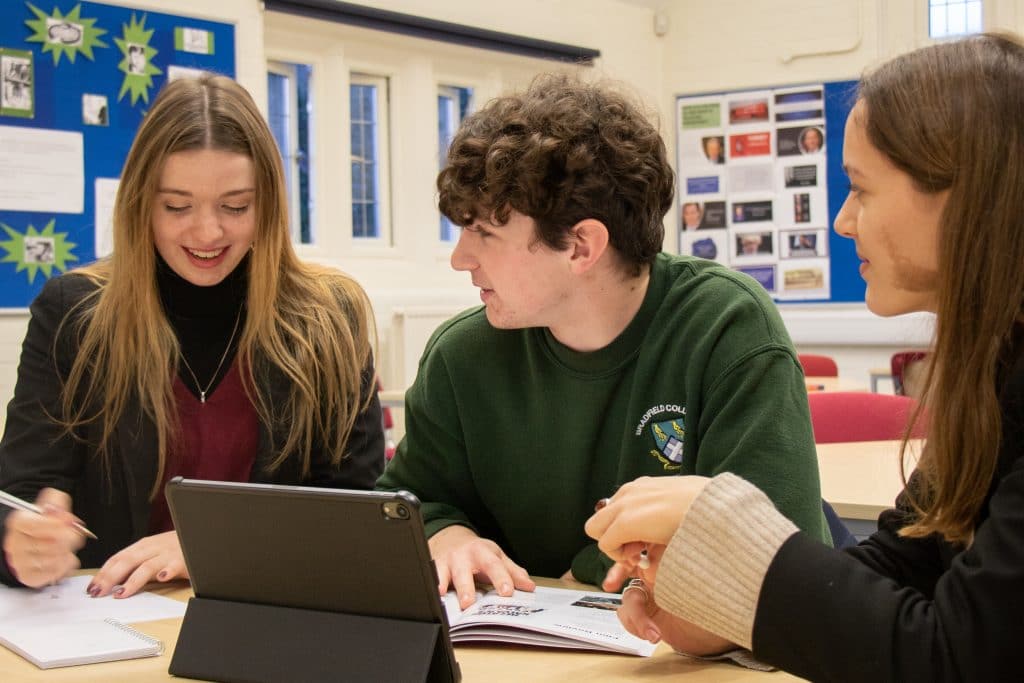Psychology is the systematic study of behaviour and mental processes and at its core are three analytical approaches which are key to understanding human behaviour: Biological, Cognitive and Sociocultural. While the course is mainly divided into these three levels of analysis there are also two option modules, Health and Abnormal Psychology, while a 2000-word experimental study provides 20% of the overall grade. These modules are by no means independent of one another and it is the critical analysis element of the course that enable the pupils to apply these fluidly.
Through these areas of study, pupils are able to appreciate the diversity as well as the commonality between their own behaviour and that of others. For example, pupils will study Bandura’s Social Cognitive Theory, which holds that an individual’s knowledge acquisition can be directly related to observing others within the context of social interactions and experience. They can take aspects of this theory, use it to discuss if aggression is a learnt behaviour and then carry out research into modern pop culture, like drill music, movies such as Joker and games like Fortnite, to either support or disprove evidence. This style is systemic in the delivery of the lessons.
PUPILS ARE ABLE TO LOOK AT SITUATIONS WITH A HEIGHTENED ANALYTICAL PERSPECTIVE.
Taking this further to see if mental health illness can be developed in the same way, is all part and parcel of equipping pupils with the skills to be able to not accept text as fact and question studies that are presented to them.
There is perhaps no better subject to study when it comes to analysing topical issues. Looking at the parallels between how globalisation, immigration and cultural assimilation are causing cultural clashes, while also opening up opportunities for greater understanding and coexistence, can shed light on one of today’s biggest issues. Equally, dissecting documentaries such as When They See Us and merging concepts of stereotypes, schema, eye-witness testimony and systemic racism ensure that pupils are able to look at situations with a heightened analytical perspective.
It is not just inside the classroom that pupils are able to access these kinds of topics. We also offer a Psychology Society where pupils have the opportunity to discuss the subject outside the realms of the curriculum. It is often pupil-driven and previously we have discussed and debated Stockholm Syndrome, serial killer profiling, county lines, slavery and trafficking and, most recently, the killing of George Floyd and the riots that ensued.
All the factors combine to make Psychology one of the most popular choices for our pupils. As one member of the Upper Sixth puts it, surely there is no other subject that really succeeds in providing an Education for Life.






